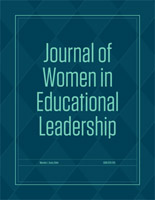Educational Administration, Department of

Journal of Women in Educational Leadership
Date of this Version
4-2007
Document Type
Article
Citation
Journal of Women in Educational Leadership, Vol. 5, No.2-April 2007 ISSN: 1541-6224
Abstract
One way to improve your writing skills is to serve as an editor or reviewer. When you read a variety of manuscripts, you increase your knowledge of the subject as well as enrich your knowledge of writing. In practitioner fields, one learns side-by-side with seasoned professionals. Just as medical professionals learn their craft knowledge through practicing on patients, educational administrators learn their craft knowledge by practicing on educational organizations. Writers, too, learn their craft knowledge by practicing on the prose of others and crafting their own prose. We learn from both positive examples and from negative examples. As an editor or reviewer, you read excellent and marginal examples of writing. This is to be expected, since writers are often at different stages of learning the craft of writing. Certainly writing is an enterprise where "practice makes perfect" or at least "practice should make better." At the editor stage of the review process, I have observed the following shortcomings in manuscripts. Beware these writing gaffes: 1. Failure to proofread the manuscript before it is submitted. 2. Failure to provide complete references. 3. Failure to follow the recommended style manual or any style manual. 4. Failure to make an original contribution to the knowledge base in the field of educational leadership. 5. Failure to provide a "breath of fresh air" through enthusiastic writing. 6. Failure to remove the "dissertationese" from the manuscript. 7. Failure to answer the questions: so what, who cares? 8. Failure to use an active voice in the writing of the manuscript. 9. Failure to practice parsimonious use of the language. 10. Failure to demonstrate the use of the rich vocabulary available in the English language. 11. Failure to remember the audienceuwho wants to read this? 12. Failure to provide a thorough and thoughtful analysis of the research and ideas and the implications of the research and ideas for educational leaders.


Comments
Copyright © 2007 Pro>Active Publications. Used by permission.